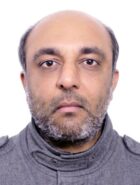This is an annual prize by Routledge, the publishers of The Round Table, for the best policy-oriented article on a theme of significance for the contemporary Commonwealth published in the journal each calendar year. The prize, which carries a value of £1000 Sterling, is awarded each year to the author of the best policy-relevant article published in the previous year. It is awarded at the discretion of the editor, with advice both from the publishers and from the journal’s editorial and international advisory boards. The editor’s decision is final and no correspondence will be entertained on the subject.
The prize has been instituted in memory of Peter Lyon (1934-2010), who was Reader in International Relations at the Institute of Commonwealth Studies, University of London, and Editor of The Round Table from 1983 to 2004. Widely acknowledged as one of the leading experts on the Commonwealth, he was keen to bridge the divide between academia and policy-making, and over the period of his editorship he wrote almost 100 editorials and other articles for the journal, commenting on more or less every issue of relevance to the contemporary Commonwealth.
All articles published in the journal which contain a significant policy-oriented element will automatically be considered as entries for the prize.
To submit an article for publication in the journal, please go to The Round Table‘s electronic submission website, https://www.tandfonline.com/
To discuss a proposal for an article for publication in the journal, please contact:
Professor Sue Onslow, Editor, The Round Table
E-mail: editor@commonwealthroundtable.
2024 winner – Belyndar Maonia Rikimani
The Round Table is pleased to announce that the winner of the Peter Lyon Prize for 2024 is Belyndar Maonia Rikimani, for her article, ‘Climate justice and Pacific Island countries – a case study on grassroots advocacy’, published in The Round Table, volume 113, issue 4 (August 2024).
 Belyndar is a Solomon Islander, and graduated with a Bachelor of Law degree and a Professional Diploma in Legal Practice from the University of the South Pacific. She is currently the Secretary to the Trade Dispute Panel under the Ministry of Commerce, Industry, Labour and Immigration, where her everyday work deals mainly with labour law and employment issues of workers within Solomon Islands. She was one of the founding members of the Pacific Islands Students Fighting Climate Change, who have led the Advisory Opinion Campaign on Climate Change and Human Rights, and she is currently the Awareness Chairperson of the organization within the Executive Committee. She is also a One Young World Ambassador representing Solomon Islands. She is a passionate advocate for climate justice for the Pacific Islands and the region, and strongly believes that change has to start with ourselves; and that our collective efforts can make a big difference if we all stand together.
Belyndar is a Solomon Islander, and graduated with a Bachelor of Law degree and a Professional Diploma in Legal Practice from the University of the South Pacific. She is currently the Secretary to the Trade Dispute Panel under the Ministry of Commerce, Industry, Labour and Immigration, where her everyday work deals mainly with labour law and employment issues of workers within Solomon Islands. She was one of the founding members of the Pacific Islands Students Fighting Climate Change, who have led the Advisory Opinion Campaign on Climate Change and Human Rights, and she is currently the Awareness Chairperson of the organization within the Executive Committee. She is also a One Young World Ambassador representing Solomon Islands. She is a passionate advocate for climate justice for the Pacific Islands and the region, and strongly believes that change has to start with ourselves; and that our collective efforts can make a big difference if we all stand together.
2023 winner – Raj Verma
The Round Table is pleased to announce that the winner of the Peter Lyon Prize for 2023 is Raj Verma, for his article ‘India’s quest for security and its neutrality in the Russia-Ukraine war’, published in The Round Table, volume 112, issue 1 (February 2023).

Raj is Associate Professor of International Relations and Foreign Policy at the School of International Relations and Public Affairs, Shanghai International Studies University, Shanghai, Songjiang campus. He has an MPhil and PhD in International Relations from London School of Economics and Political Science. His research is focused on India’s and China’s foreign and security policy, India and China’s political economy, Sino-Indian-US-Russia-Pakistan relations, international politics of Asia-Pacific, emerging world order and International Relations theory. He is the editor/co-editor of seven special issues/sections and is the author of almost 40 articles published in journals. He has been regularly interviewed by media in India, China, the UK and Europe, and has been invited by universities and think-tanks in India, China, Taiwan, the Philippines and the UK to deliver lectures.
2022 winner – Jivanta Schottli
The twelfth winner of the Peter Lyon Prize was Jivanta Schottli, for her article, ‘India and the “great powers”: from the Indian Ocean to the Indo-Pacific region’, published in The Round Table, volume 111, issue 3 (June 2022).

Jivanta is Assistant Professor in Indian Politics and Foreign Policy at the School of Law and Government and Director of the Ireland India Institute at Dublin City University. Her research explores the intersection between domestic politics and international relations in terms of policy-formulation and implementation. She has published on India’s contribution to maritime governance in the Indian Ocean and the country’s role as a foreign policy actor within the emerging architecture of the Indo-Pacific. She has co-authored a book, titled Statecraft and Foreign Policy: India, 1947–2023, which will be published later this year.
Previous winners
2021 winner – Jamie Trinidad
The eleventh winner of the Peter Lyon prize was Jamie Trinidad, for his article, ‘Self-determination and contested peoplehood in Gibraltar: separating the law from the rhetoric’, published in The Round Table, volume 110, issue 3 (June 2021).
 Jamie is a Fellow and Director of Studies in Law at Wolfson College, Cambridge, and a Fellow of the Lauterpacht Centre for International Law at the University of Cambridge. He is also a barrister at Isolas LLP (Gibraltar’s oldest law firm) and a door tenant at 7 Bedford Row chambers. His research and practice cover many areas of international law, including territorial disputes (land and sea), self-determination, and the relationship between the British Overseas Territories and the United Kingdom. His recent publications include Self-Determination in Disputed Colonial Territories (2018).
Jamie is a Fellow and Director of Studies in Law at Wolfson College, Cambridge, and a Fellow of the Lauterpacht Centre for International Law at the University of Cambridge. He is also a barrister at Isolas LLP (Gibraltar’s oldest law firm) and a door tenant at 7 Bedford Row chambers. His research and practice cover many areas of international law, including territorial disputes (land and sea), self-determination, and the relationship between the British Overseas Territories and the United Kingdom. His recent publications include Self-Determination in Disputed Colonial Territories (2018).
2020 winner – Nkwachukwu Orji
The tenth winner of the Peter Lyon prize was Nkwachukwu Orji, who was awarded the prize for his article, “Fixing Nigerian elections: why electoral reforms are not working”, published in The Round Table, volume 109, issue 6 (December 2020).
 Nkwachukwu is a Senior Research Fellow at the Institute for Development Studies, University of Nigeria Nsukka (Enugu Campus). In 2017 he obtained leave to serve as a Resident Electoral Commissioner with Nigeria’s Independent National Electoral Commission. Since then he has combined his research work with election management. His research focuses on elections, democratization, conflict, and peace-building. Among his recent publications is an article on Election Violence Prevention that appeared in Democratization (2017). He is currently working on a project analysing election security in Nigeria.
Nkwachukwu is a Senior Research Fellow at the Institute for Development Studies, University of Nigeria Nsukka (Enugu Campus). In 2017 he obtained leave to serve as a Resident Electoral Commissioner with Nigeria’s Independent National Electoral Commission. Since then he has combined his research work with election management. His research focuses on elections, democratization, conflict, and peace-building. Among his recent publications is an article on Election Violence Prevention that appeared in Democratization (2017). He is currently working on a project analysing election security in Nigeria.
2019 winner – Ryan W. French
The ninth winner of the Peter Lyon prize was Ryan W. French, who was awarded the prize for his article, “Constructing Cooperation: A New Approach to Confidence Building between India and Pakistan”, published in The Round Table, volume 108, issue 2 (April 2019).

Ryan is the Associate Director of Rimland Strategies Group, a geopolitical consultancy based in Washington, DC. Previously, he worked at the Center for Naval Analyses, the Naval War College, and the Naval Postgraduate School, where he consulted on US naval strategy, tracked political-military affairs in Asia, and provided design and development support to wargames. Ryan’s research focuses on issues of strategic stability and deterrence. His work has appeared in Strategic Studies Quarterly and The Bulletin of the Atomic Scientists, with commentaries published by War on the Rocks, the London School of Economics, and the World Policy Institute.
2018 winner – Preston Arens
The eighth winner of the Peter Lyon prize was Preston Arens, who was awarded the prize for his article, “’Strictly Non-committal’: British Economic Policy and the Commonwealth”, published in The Round Table, volume 107, issue 5 (October 2018).

Preston is a PhD candidate in history at the University of Waterloo, Ontario, Canada. His current research on the formation of the Commonwealth Secretariat explores how the Commonwealth became a modern international organisation both in conceptual and practical terms. He has presented widely on intellectual history and historiography, and teaches British and Commonwealth history, as well as special topics in decolonisation and international relations.
2017 winner – Michael Goldsmith
The seventh winner of the Peter Lyon Prize was Professor Michael Goldsmith, of the University of Waikato, New Zealand. Michael was awarded the prize for his article, “Diplomatic Rivalries and Cultural One-Upmanship: New Zealand’s Long Quest to Become more Pacific than Australia”, published in The Round Table, volume 106, issue 2 (April 2017).

Michael Goldsmith took early retirement as Associate Professor of Anthropology and Chair of the School of Social Sciences at the University of Waikato, Hamilton, New Zealand in 2014. He was subsequently made an Honorary Fellow of the University and continues to contribute to academic forums. He has published widely across anthropology, history and political studies, with a strong focus on the Island Pacific and New Zealand. Recent publications include ‘The Big Smallness of Tuvalu’ (Global Environment 2015) and his current projects include co-editing a collection of essays on conversion in the Pacific.
2016 winner – Ian Hall
The sixth winner of the Peter Lyon Prize was Professor Ian Hall, of Griffith University, Australia. Ian was awarded the prize for his article, “Multialignment and Indian Foreign Policy under Narendra Modi”, published in The Round Table, volume 105, issue 3 (June 2016).
 Ian Hall is the acting Director of the Griffith Asia Institute and a Professor in the School of Government and International Relations at Griffith University. He has published widely on the history of international thought and on Indian foreign policy, and taught at various institutions in both Australia and the UK. Among his recent publications is an edited book on The Engagement of India: Strategies and Responses (2014). He is currently working on a project analysing India’s relationship with the liberal international order.
Ian Hall is the acting Director of the Griffith Asia Institute and a Professor in the School of Government and International Relations at Griffith University. He has published widely on the history of international thought and on Indian foreign policy, and taught at various institutions in both Australia and the UK. Among his recent publications is an edited book on The Engagement of India: Strategies and Responses (2014). He is currently working on a project analysing India’s relationship with the liberal international order.
2015 winner – Naeem Shakir

The fifth winner of the Peter Lyon Prize was Naeem Shakir, a Supreme Court Attorney of Pakistan. Naeem was awarded the prize for his article, “Islamic Shariah and Blasphemy Laws in Pakistan”, published in The Round Table, volume 104, issue 3 (June 2015).
Naeem was a leading human rights lawyer, and a life member of the Supreme Court Bar Association of Pakistan, with an active law practice for more than forty years. Sadly he died in October 2017.
2014 – Nikola Pijovic – “The Commonwealth: Australia’s Traditional ‘Window’ into Africa”
The Round Table, volume 103, issue 4 (2014), pp. 383-397
2013 – Julian Burger –“Indigenous Peoples in Commonwealth Countries: the Legacy of the Past and Present-Day Struggles for Self-Determination”
The Round Table, volume 102, issue 4 (2013), pp. 333-342
2012 – Rhona Smith – “Towards the rule of law’s human rights requirements in Commonwealth member states”
The Round Table, volume 101, issue 4 (2012), pp. 311-329
2011 – Ben Saul – “Throwing Stones at Streetlights or Cuckolding Dictators? Australian Foreign Policy and Human Rights in the Developing World”
The Round Table, volume 100, issue 4 (2011), pp. 423-439



